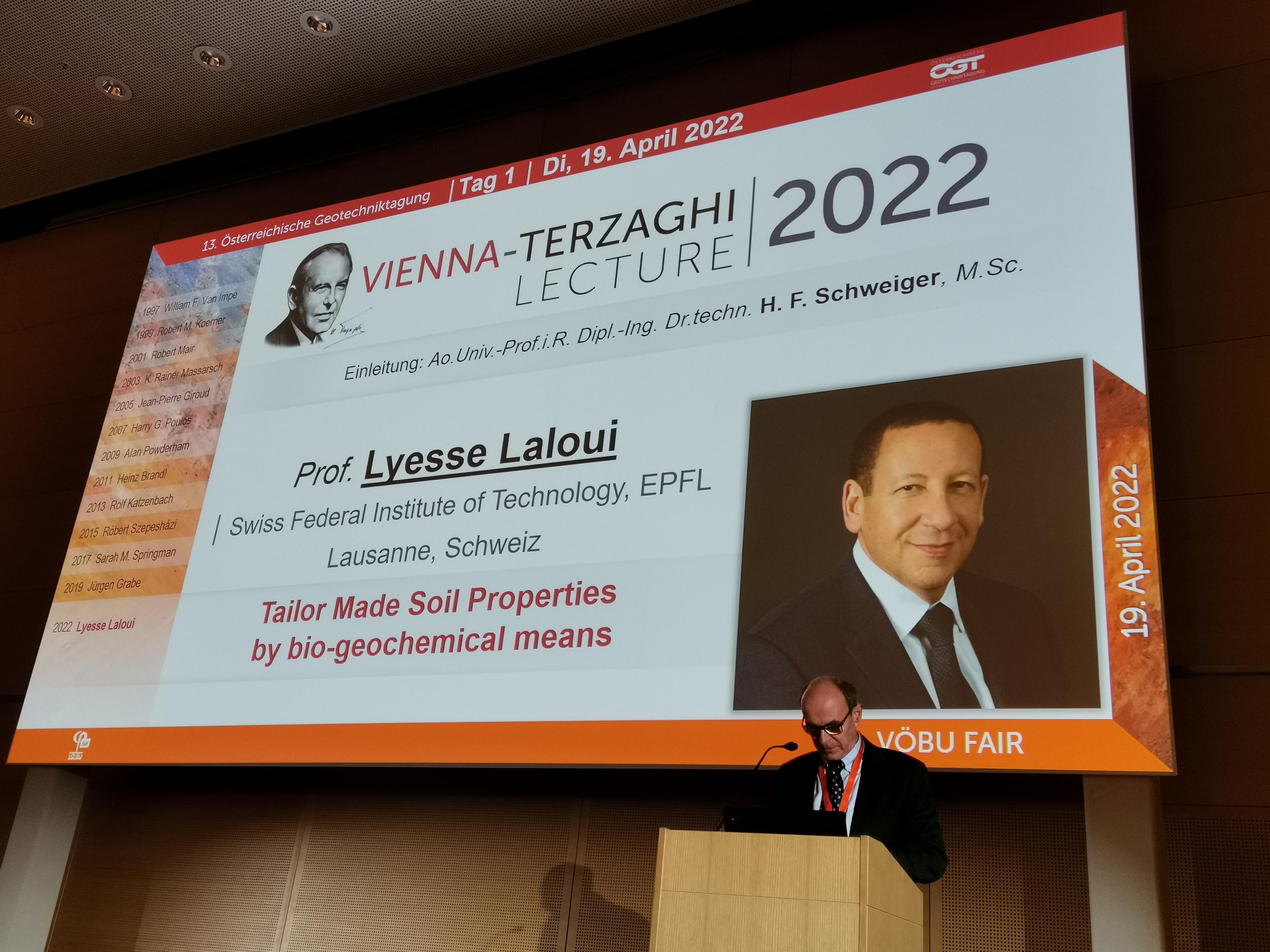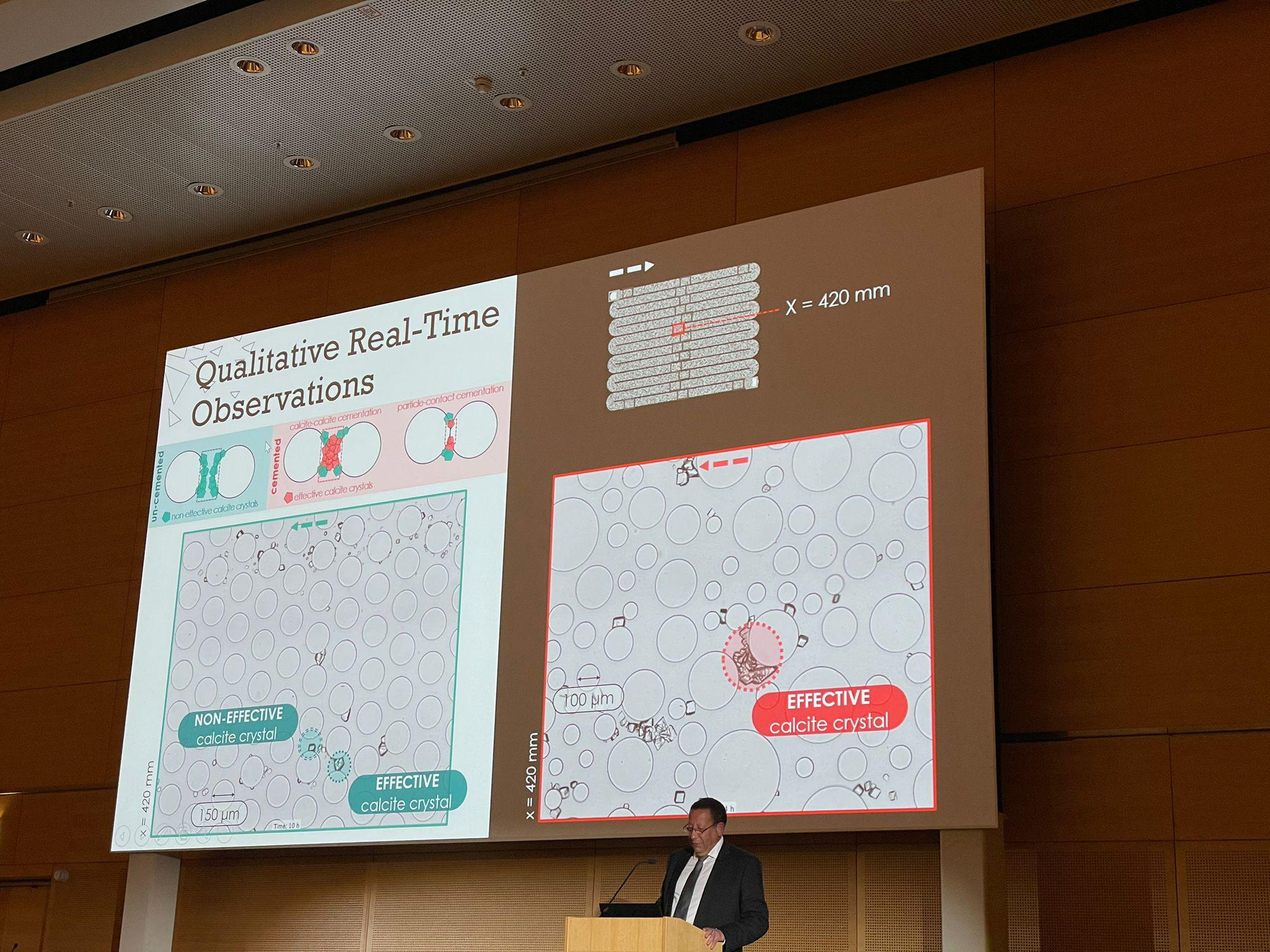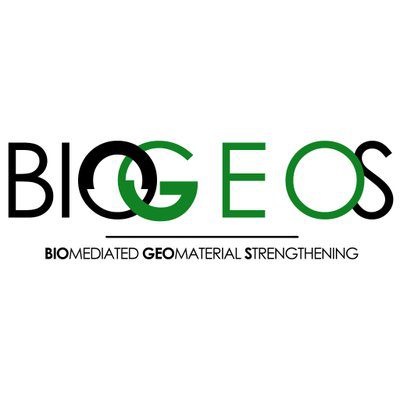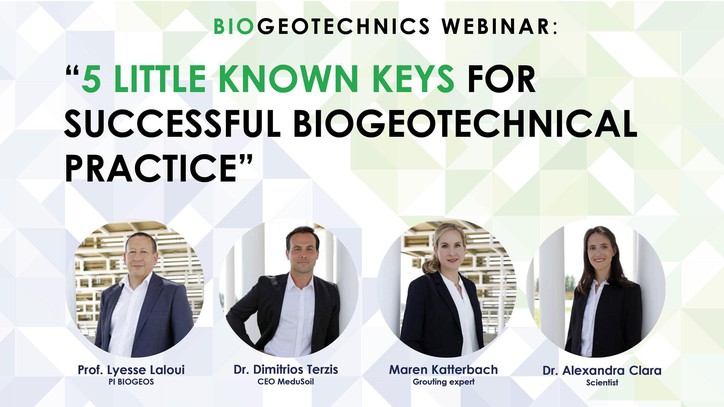Abstract:
The vast majority of infrastructure assets are constructed with or on unsuitable soils, which must be improved prior to, or after, construction. Conventional ground improvement technologies have historically relied on cement- and petroleum-based materials, perceived as straightforward commodities. This view can no longer be sustained due to the large volume and machine-intensive operations required, along with the resultant high carbon footprint and environmental damage. This webinar will present an alternative approach to material design and delivery using natural organic systems present within the soil to precipitate carbonate minerals that act as soil-binding agents. Technical discoveries and developments of bio-cemented soils will be presented, with a particular focus on how this technology can be integrated into mainstream geotechnical practice. Through the following points, under the scope of the ERC-funded BIOGEOS project, this talk will highlight to researchers and practitioners alike, the opportunities of a technology that will shape the future of low carbon soil remediation and stabilization practices:
• Applications & performance of bio-cemented soils
• Breaking the nitrogen barrier in biotic calcification
• Economics & environmental impact
• Equipment & monitoring
• Industrial practice: guidelines for successful integration
Lecturers:
Prof. Lyesse Laloui
Professor Lyesse Laloui is the director of the Soil Mechanics Laboratory of EPFL. He is the recipient of the Advanced ERC Grant for his project BIOGEOS (BIO-mediated GEO-material Strengthening). He also received an ERC Proof of Concept Grant in 2020, to bring his research from lab to market. Founder and Editor-in-Chief of the Elsevier Geomechanics for Energy and the Environment journal, he is a leading scientist in the field of geomechanics and geo-energy. He has written and edited 13 books and published over 320 peer reviewed papers; his work is cited more than 6500 times with an h-index of 42 (Scopus). Two of his papers are among the top 1% in the academic field of Engineering.
Dr. Dimitrios Terzis
Dimitrios is a Scientist and Lecturer at the Swiss Federal institute of Technology, Lausanne (EPFL). In 2017 he obtained his PhD in Mechanics from EPFL. He has co-authored over ten peer-reviewed publications focusing on research and development around soil bio-cementation. He is the co-inventor of three patents which introduce niche elements towards efficient upscaling, environmental and economic applications of bio-geo-technical systems. He is the recipient of innovation grants and awards which sum up to over a million CHF. In 2018 he co-founded the EPFL spin-off MeduSoil which designs and delivers real-world systems based on bio-cementation to serve mainstream geotechnical projects. Since 2019 he is the principal lecturer and organizer of the course “Innovation for construction and the environment” which is taught in the Civil Engineering section of EPFL.
Maren Katterbach
Maren is head of department and a consulting engineer with Lombardi Engineering Ltd. in Switzerland. Maren has been involved in a variety of projects, including underground construction, foundation stability, dam construction, and safety assessments. Within the framework of various dam projects in Europe, Africa, Latin America and Asia, she has provided expertise in the roles of consultant or designer for major foundation grouting works. Maren provides technical support to the EPFL spin-off MeduSoil, where through her role as the company’s CTO, she is designing and implementing real-scale solutions of the novel technique, which combines technical innovation, with economic efficiency and environmental responsibility in grouting applications.
Dr. Alexandra Clarà Saracho
Alexandra is a Postdoctoral Researcher at the Laboratory of Soil Mechanics at EPFL. She holds a MRes in Future Infrastructure and Built Environment (2016) and a Ph.D. in Geotechnical Engineering (2020), both from the University of Cambridge (UK). Her Ph.D. research investigated the application of biocement for the erosion control of sands and was the product of an industry-academia collaboration between University of California, Berkeley (USA), Hiroshima University (Japan), the University of Cambridge, and Japan Oil, Gas and Metals National Corporation. Passionate about interdisciplinary approaches, her current research focuses on the design of carbonate-based biomaterials and delivery strategies that are coupled with end geotechnical applications, resulting in increased functionality.





